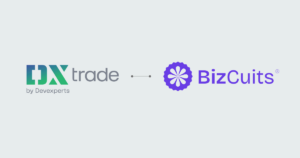Precious metals traders accused of spoofing seek to dismiss charges in criminal case
Gregg Smith, Michael Nowak, Jeffrey Ruffo, and Christopher Jordan try to nix indictment against them.

The criminal proceedings targeting three former traders and one former salesperson on the precious metals trading desk of a major international financial firm continue at the Illinois Northern District Court, with the defendants seeking to rebuff the allegations against them.
On February 28, 2020, Gregg Smith, Michael Nowak, Jeffrey Ruffo, and Christopher Jordan submitted a motion to dismiss Counts One, Two (in part), and Three through Fourteen and to strike prejudicial surplusage in Paragraphs 40 and 41 of the Superseding Indictment. Let’s recall that the fourteen-count Indictment charges the defendants with participation in two conspiracies – a racketeering conspiracy in violation of the Racketeer Influenced and Corrupt Organizations Act, 18 U.S.C. §§ 1961–1968 (“RICO”), and a conspiracy to manipulate prices, violate several fraud statutes, and engage in spoofing, as well as five substantive offenses: attempted price manipulation, bank fraud, wire fraud affecting a financial institution, commodities fraud, and spoofing.
According to the defendants, this case, at its heart, is about: (a) the alleged placing of bids and offers in the precious metals futures markets with intent to cancel those orders before execution, commonly known as spoofing; and (b) “sparse, conclusory allegations of purportedly fraudulent but unspecified trading activity” relating to barrier options, described by the government as “barrier-running” and “barrier-defending.”
The defendants argue that the Indictment’s core flaw is that, as alleged, the market activity undertaken by the defendants does not constitute fraud. The defendants insist that the alleged spoof orders placed by them were real, executable, open-market orders. Similarly, in the defendants’ view, “the bare-bones allegations regarding barrier-related trading activity do not make out an actionable theory of fraud”. Accordingly, they argue that the substantive counts of bank fraud, wire fraud, and commodities fraud must be dismissed, along with the corresponding portions of the two conspiracy counts.
Furthermore, with respect to the bank fraud counts, the defendants argue that there is no allegation that they had the requisite specific intent to defraud a financial institution in connection with this purported conduct. Because the precious metals futures trading alleged in the Indictment occurred on anonymous CME Group exchanges, the defendants could not have known whether they were trading with a financial institution and thus could not have specifically intended to defraud one.
The allegations regarding barrier options do not even assert that the clients purportedly defrauded were financial institutions, according to the defendants.
In addition, the defendants say that the Indictment’s characterization of spoofing as fraud in violation of the bank, wire, and commodities fraud statutes violates their rights to due process because, at the time of the alleged conduct, neither the statutory framework and related guidance nor prior prosecutions gave fair notice that the conduct could be considered fraudulent. The fraud statutes are therefore unconstitutionally vague, the defendants conclude. Hence, the substantive fraud and conspiracy counts should be dismissed for that reason as well.
Because spoofing and barrier-running are not fraudulent conduct, that alleged activity cannot constitute predicate acts of bank or wire fraud for purposes of the RICO conspiracy charge, and that charge must be dismissed, according to the defendants’ motion to dismiss. Moreover, they say, that activity does not constitute a “pattern” as RICO requires, also warranting dismissal of the charge.
Finally, the defendants argue that the substantive counts, Counts Three through Fourteen, must be dismissed because they variously lack specificity as to the trading sequences at issue, are impermissibly duplicitous, and purport to charge trading activity outside the applicable statutes of limitations; and that Paragraphs 40 and 41 of the Indictment contain prejudicial surplusage concerning a prior, unrelated investigation, which should be stricken.









